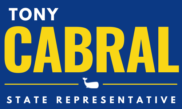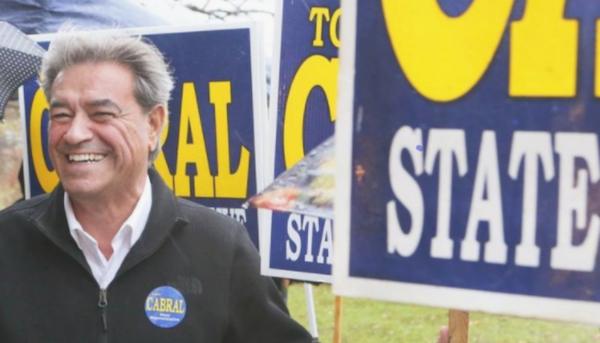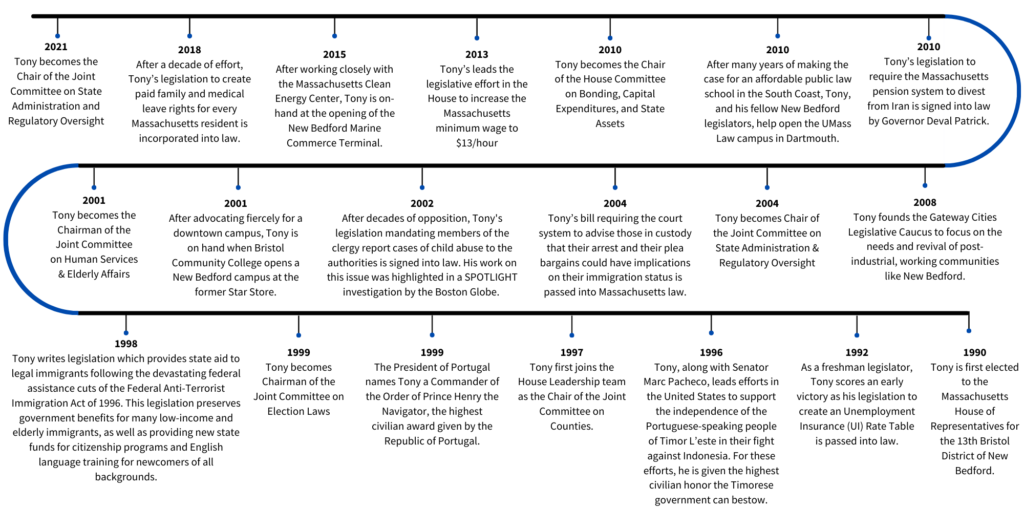
education
“Education is the DNA of economic development.” – Antonio F. D. Cabral
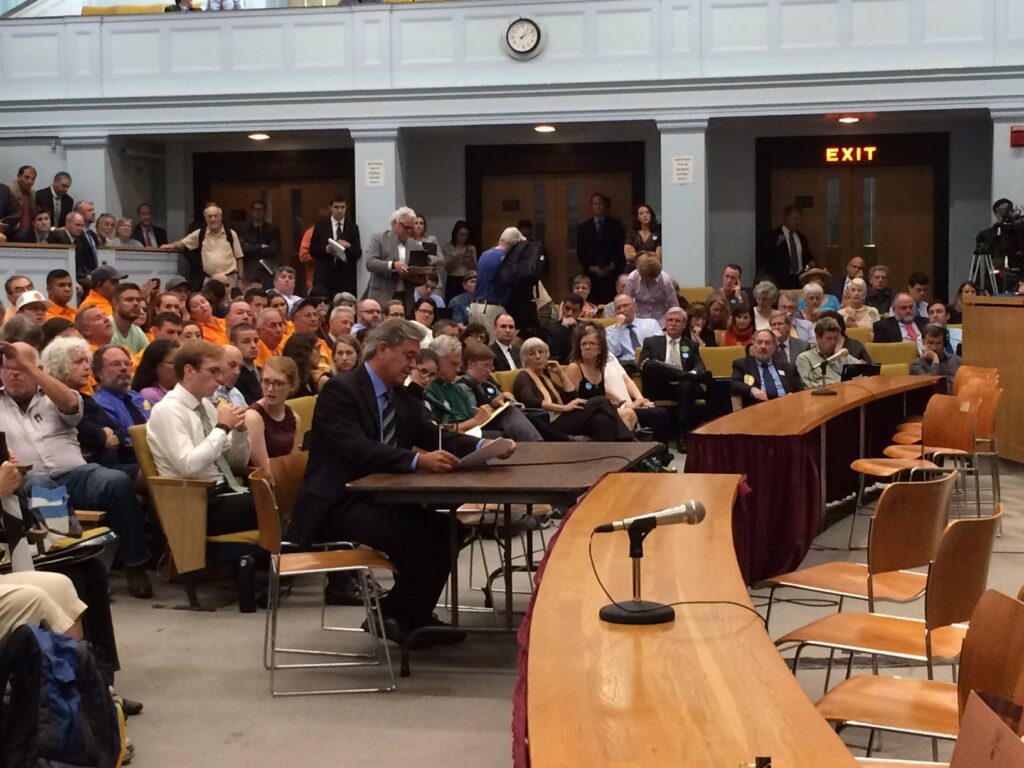 Education has always been a high priority to Rep. Cabral. In this session, Tony has filed legislation that would require full-day kindergarten programs for all children across the Commonwealth. Quality early education is vital to a child’s success and Tony has been a long-time supporter of programs like PACE Head Start.
Education has always been a high priority to Rep. Cabral. In this session, Tony has filed legislation that would require full-day kindergarten programs for all children across the Commonwealth. Quality early education is vital to a child’s success and Tony has been a long-time supporter of programs like PACE Head Start.
Tony also has filed a bill that mandates that every school bus transporting students to or from a public, vocational or parochial school be equipped with a seatbelt or lap-shoulder belt for each child. Legislative support for this measure is finally building on Beacon Hill, so Tony is more confident than ever that this commonsense safety precaution will soon become law.
Inequities in education financing have been a growing problem for school districts across Massachusetts. In the 2010 education reform debate, Tony successfully fought for increasing support for English Language Learners in our education system. With the passage of the Student Opportunity Act in 2019, formulas related to the cost of educating economically-disadvantaged students, special needs students, and English Language Learners all increased. This new law will infuse the public education system in Massachusetts with an estimated additional $1.5 billion over the next seven years, $85 million of which will come to New Bedford.
However, the conversation of public education finance reform is not over. Under current law, as the number of students at charter schools increase, the public school districts pay more in charter school tuition payments to cover these students, leaving less for the great majority of students in the district schools. In response, Rep. Cabral has filed An Act Relative to Transparency and Accountability in Charter School Finance. In this bill, the expense of Charter School Tuition Payments would be split between a local share, capped at the statewide average, and the state, subject to yearly appropriation, thereby decoupling a portion of charter school funding from district school funding. This proposal has the support of the Massachusetts Municipal Association, the Massachusetts Association of School Committees, the Massachusetts Association of School Superintendents, the Massachusetts Teachers Association, and the American Federation of Teachers.
human & civil rights
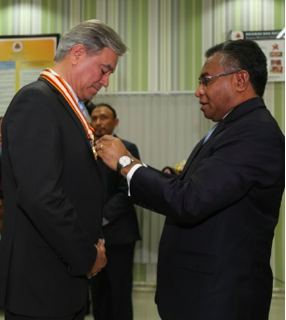
Tony continues to be a fierce advocate for human and civil rights both here and abroad. In 1996, Tony led efforts in the United States to support the independence of the Portuguese-speaking people of Timor L’este in their fight against Indonesia. For these efforts, in 2017, he was given the highest civilian honor, the Collar of the Order of Timor-Leste, the Timorese government can bestow. Prime Minister Rui Maria de Araujo stressed that Tony “was tireless in advocating [for] the rights and freedoms of the Timorese people at the highest level in the United States,” specifically his legislation “sanctioning companies and businesses in or with the Republic of Indonesia in late 1990s.” Tony filed legislation in 1996 during East Timor’s quest for independence, which led to a more meaningful conversation internationally. The legislation and increased US and international pressure acted as a catalyst, ultimately resulting in a referendum vote in Timor-Leste granted by Indonesia in 1999 and the restoration of the country’s independence in 2002. Years later, in 2010, Tony’s method of sanctioning through legislation proved successful again when his legislation to require the Massachusetts pension system to divest from Iran was signed into law by Governor Deval Patrick. The Commonwealth’s retirement fund was among the first state funds to divest.
In 2002, Tony’s legislation mandating members of the clergy report cases of child abuse to the authorities was signed into law. Tony had been serving as the House Chairman of the Joint Committee on Human Services and Elderly Affairs, the legislative committee that handled child abuse legislation. Legislators had been filing bills in Massachusetts to include clergy in the Commonwealth’s mandated reporter law, section 51A of Chapter 119 of the MA General Laws. Until 2002, religious officials, as well as their superiors, were exempt from this law. But on May 6, 2002, the committee’s bill was signed into law, finally closing the loophole that had given clergy license to cover up the truth. His work on this issue was highlighted in a Boston Globe Spotlight investigation.
Tony also continues to hold local officials accountable to their constitutional duties and the responsible use of the public purse. His bill, An Act Limiting the Use of Prison Labor, requires that any inmate work program be performed within the boundaries of the Commonwealth. The bill aims to preemptively prohibit Massachusetts from sending inmates to participate in any so-called “national inmate work programs” for the purpose of constructing a wall along the southern border of the United States.
 Tony’s companion legislation, An Act Enforcing Federal Law, would prohibit state officials from spending any state funds to participate in 287(g) agreements with U.S. Immigration and Customs Enforcement (ICE). Currently, these 287(g) agreements deputize certain state employees to act as federal immigration enforcement agents to detain immigrants for civil, not criminal, infractions. Current federal policy explicitly states that no federal dollars are to be used in the implementation of 287(g) agreements. Rep. Cabral’s legislation requires that the costs associated with 287(g) agreements are not borne by Massachusetts taxpayers, in effect ending these agreements in Massachusetts. A second component of the bill, which calls for quarterly reporting of the costs and reimbursements of these immigration enforcement agreements, passed earlier this year in the FY2022 state budget.
Tony’s companion legislation, An Act Enforcing Federal Law, would prohibit state officials from spending any state funds to participate in 287(g) agreements with U.S. Immigration and Customs Enforcement (ICE). Currently, these 287(g) agreements deputize certain state employees to act as federal immigration enforcement agents to detain immigrants for civil, not criminal, infractions. Current federal policy explicitly states that no federal dollars are to be used in the implementation of 287(g) agreements. Rep. Cabral’s legislation requires that the costs associated with 287(g) agreements are not borne by Massachusetts taxpayers, in effect ending these agreements in Massachusetts. A second component of the bill, which calls for quarterly reporting of the costs and reimbursements of these immigration enforcement agreements, passed earlier this year in the FY2022 state budget.
The Biden Administration also seems to be questioning these agreements. The Department of Homeland Security terminated its 287(g) contract with Bristol County Sheriff’s Office in May 2021 citing allegations of racial profiling and inmate abuse as contributing factors in their decision. The Plymouth County Sheriff’s Office recently terminated its 287(g) contract with ICE voluntarily citing staffing issues. Presently, only the Barnstable County Sheriff’s Office and the state Department of Corrections continue to have 287(g) agreements with ICE.
All people – including all immigrants – have rights and should be treated fairly and equally by our government institutions.
government transparency
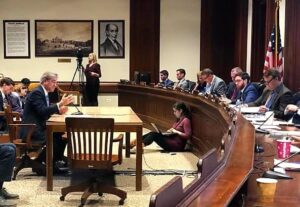 For several years, Rep. Cabral has worked extensively on issues related to open government and transparency. Tony was successful in making important changes to the state’s Public Records Law in 2016, granting the public easier online access to their government-related information requests.
For several years, Rep. Cabral has worked extensively on issues related to open government and transparency. Tony was successful in making important changes to the state’s Public Records Law in 2016, granting the public easier online access to their government-related information requests.
During the 2019-2020 session, he championed commonsense changes to the way the Judiciary performs its duties as well. Massachusetts is the only state where “show cause hearings” are in practice, in which a clerk magistrate can decide whether criminal charges against an individual are dismissed or brought to trial behind closed doors.
Rep. Cabral filed legislation to ensure that the proceedings during these hearings are recorded and presumed open to the public unless the defendant’s privacy outweighs the public’s “right of access.” Some progress has been made on this front, but the fight to increase public access to these hearings continues.
paid family and medical leave
“Some politicians talk a lot about families, but do very little. Every family needs help from time to time, whether getting a newborn off to a good start or caring for an elderly parent… Families during difficult times deserve real solutions. I will not stop fighting until families get the help they need and deserve.” – Tony Cabral, 2006
Rep. Tony Cabral began advocating for a paid medical leave plan in 2005. His bill, first filed in 2005, provided twelve weeks of paid leave while caring for a family member or for personal illness. When the MA Paid Family and Medical Leave was passed and signed into law in 2018, its contribution and compensation structure was modeled on Rep. Cabral’s original legislation.
